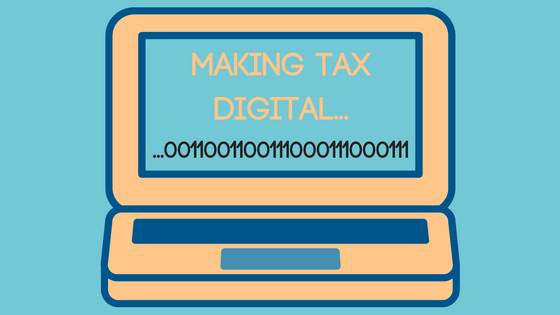Making Tax Digital: Why You Should Care
The government is set to transform its tax system and make tax administration more effective, efficient and easier for all taxpayers.
So what does it mean for your business and how it will be affected?
A recent report found that this year 75% of businesses do not currently maintain accounts electronically using accounting software. If your business is one of them, you will need to prepare yourself for the new digital tax system.
The digital tax system will roll out in April 2018 and will complete by 2020.
From 2018 most businesses, self-employed and landlords will need to use software or apps to keep their business records and to update HMRC quarterly.
HMRC will refer the start of making tax digital for some small businesses giving them extra time to get used to the system.
Also the smallest firms with a turnover of £10,000 or less will be excluded from the system.
Benefits of the New Digital Tax System
Many business owners find it challenging to manage their cash flow. The new system should provide a clearer picture of their cash flow position, financial obligations through the course of the year, and greater clarity of their tax liability.
The system will also enable business owners to make future investment decisions.
It will help businesses concentrate on their business activities, as new software and apps will take care of admin and bookkeeping activities.
How the New System Will Work
- Businesses will record and categorize receipts and expenses in a record keeping software or app.
- All financial information will be stored in the cloud.
- The software will prompt you to send HMRC summaries of your income and expenditures at least four times a year, and you will be able to do it from your software or app.
- If your business uses cash basis accounting, it will be very easy for you to make a final declaration. If your business is a bit more complex, you will need to make necessary accounting or tax adjustments and then submit your declaration.
- You will need to complete the end-of-year activity and make your final declaration nine months from the end of your accounting period.
- You will be able to pay for your tax with regular voluntary payments throughout the year if you wish to do so. This can help you better manage your cash flow. You will be able to choose how often and the amount you want to pay.
Will All Businesses Need to Use the Digital Tax System?
Not all business will be required to use the new tax system. Those who cannot use digital tools will not be forced to do so and will be exempted.
The government is also ready to provide necessary help with transition for the smallest businesses.
Here is a great video made by HMRC where you can learn more about making tax digital: https://www.youtube.com/watch?v=So1U0RzUGcs.
If you require assistance in preparing your business for the new system, get in touch with our helpful experts.
Source:

